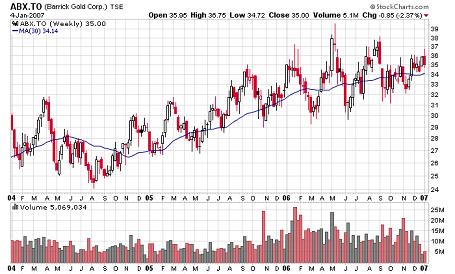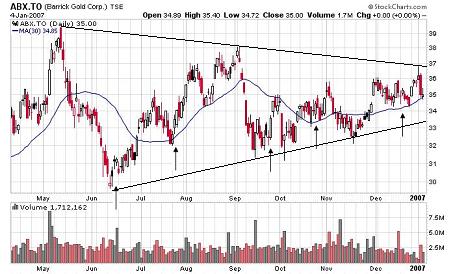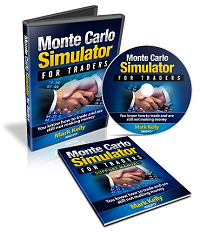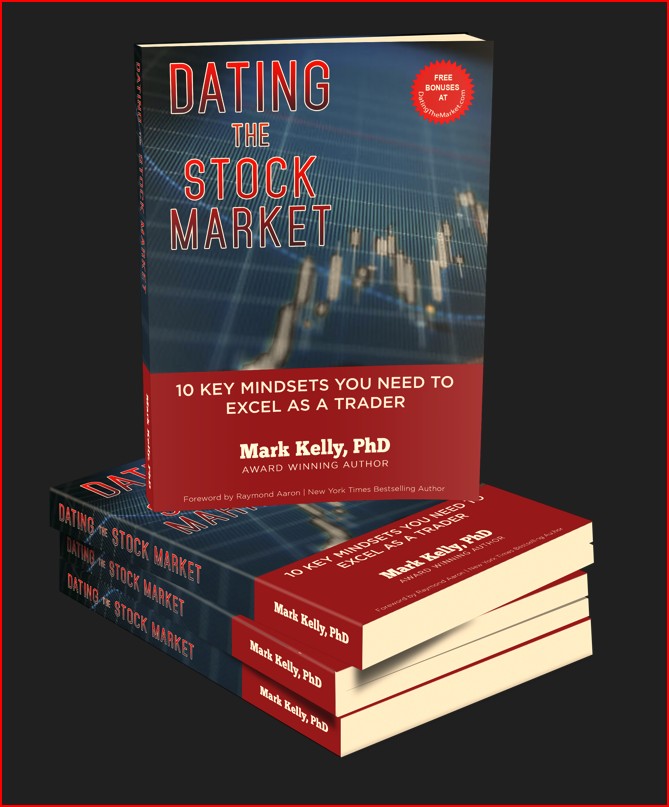Picking Stocks for Covered Calls
A Covered Call Strategy
A covered call strategy which I use on a regular basis is to write out of the money covered calls on volatile stocks. When picking stocks for covered calls, one of the key criteria is the option premium. In many cases, the premium paid by the buyer of your call option does not really warrant losing out on the upside potential. As a minimum, I like to ensure that the option trading strategy which I use will return at least 15 percent per year. The trades shown below will outline one of the current covered call strategies which I have used.
Bulls and bears are used to describe the up and down of the market. A bull tends to use its horns to lift oncoming threats out of
the way and raises them into the air which is the direction of a bull market. Bears
tend to come down on you from above hence they represent a bearish market or
one that is falling.
The above desk figurines depict the back and forth of the market as it unpredictably tends to move in a preferred direction. They make good gifts for traders, stock brokers or financial advisors.
Chart courtesy of StockCharts.com

In this example, I purchased 1000 shares of Barrick Gold (ABX on Toronto) for $30.85 on June 15 because it looked like it was coming off of long term resistance as seen in the 3 year weekly chart shown above and breaking through short term resistance as shown on the daily chart shown below. Besides, the information I had at that time indicated that gold was in a long term commodity bull market and Barrick is sitting on a lot of gold.
This stock pays a dividend and when you sell a covered call, you still receive the dividends up until the time the stock is called away from you and you are no longer the owner of the stock.
Chart courtesy of StockCharts.com

At the same time, I sold the July 34 calls for a profit of $360. These calls were briefly in the money before they expired worthless. I sold these calls as they provided a bit of premium but also would have given me about $3000 in profit had the stock been called away.
Next, on July 25, I sold the September 34 call options for a profit of $1,310. I sold the 2 month calls at this time as I was going away on holidays for 3 weeks and did not want to be bothered selling another call during the holidays. Also, September is generally a poor month in the stock market and I was not too concerned about having the stock called away. Although I could have done much better by not selling the calls and selling the stock at the end of August that was not my strategy for this trade. The calls eventually expired worthless on the 3rd Friday in September.
I then sold the October 36 calls for a profit of $260 on September 26. These calls expired worthless and never were in the money.
On October 25, 2006 I sold the December 36 calls for a profit of $960. While these stocks were briefly in the money they ultimately expired worthless as well. In this case, Christmas was on its way and I was travelling so again, I did not want to be bothered with monitoring the stock.
After the December call expired, I sold the February 2007 36 calls on December 19 for a profit of $1,205. When I sold this one, I was thinking that this time I will lose the stock. As shown on the daily chart, the stock appears to be getting close to either breaking down or up. If it breaks to the upside I plan on buying it back on a correction and if it breaks to the downside I will sell another call.
As expected, the stock was called away on the 3rd Friday in February after closing above $36. Therefore, let's look at a summary of the trade.
Summary of the Covered Call Strategy Documented Here
The total profit on my covered calls was $4,095. This was accumulated from June 15, 2006 to February 16, 2007 or essentially eight months. On a percentage basis, trading options on this stock has returned 13.3% over 8 months or about 20% on a yearly basis. As the stock was called away at $36 and I bought it for $30.85, I gained about an additional $5000 or 16%. All in all, not a bad return resulting in a qualified winner.
When writing covered calls you have to be willing to give up the potential windfall if the stock takes off. Sooner or later if you continue to use a covered call strategy, you will experience a major advance on a stock you have sold calls against. This is all part of the game. You will also experience times when the stock goes against you after you sell a call. You should have a plan for this. Will you exit the trade or hold on and sell another call. A word of caution, once the stock falls away from the buy point, the premium you will receive is generally quite low and at this point it is not really worth selling a covered call on the stock.
On a cautionary note, it is generally not a good idea to write calls against a falling stock. The drop in the stock price will almost always be greater than the option premium which would make this covered call strategy a loser.
Before you start to use a covered call strategy, you may want to learn more about selling calls. If so, check out our covered call section.
Gifts for Stock Traders - Stock traders are a different breed. For the stock trader in your life or as a present to yourself consider getting a trading mug. This can be used throughout the day to sip on your favourite beverage and remind you that you are a trader.
Monte Carlo Simulator
for Traders
 Having troubles sticking with your trading system?
Having troubles sticking with your trading system?
Do you move from system to system looking for the one system that will bring you riches?
Perhaps you already have it and tossed it aside when it went into a down period.
Using this Excel based program will show you what you can expect out of your trading system once you know the % wins and profit factor.
Stop wasting your time searching for the perfect system (which does not exist) and start trading.
$20.00



